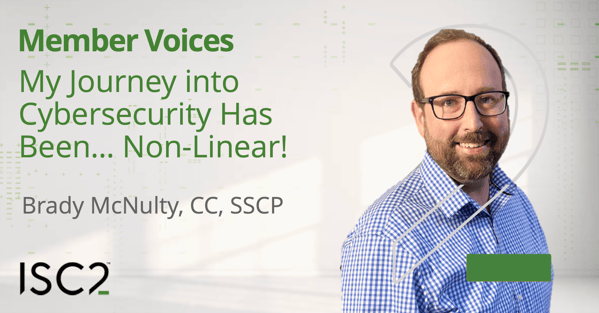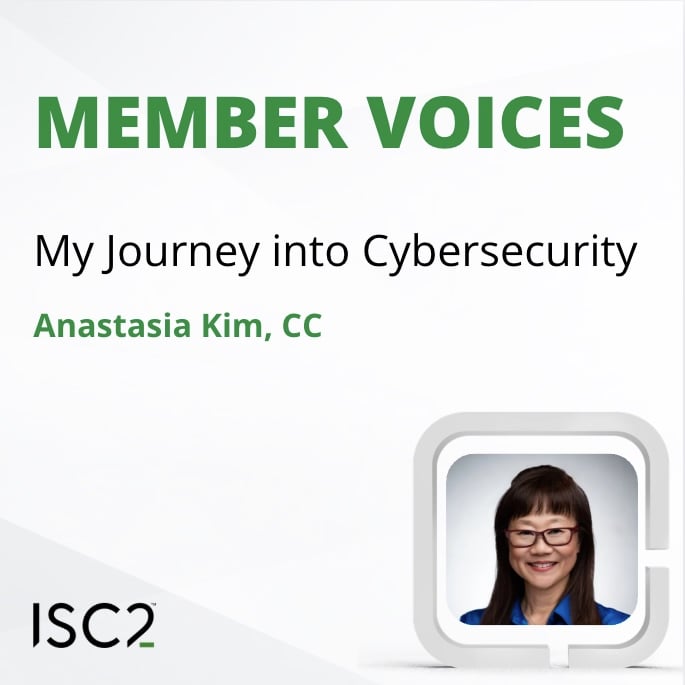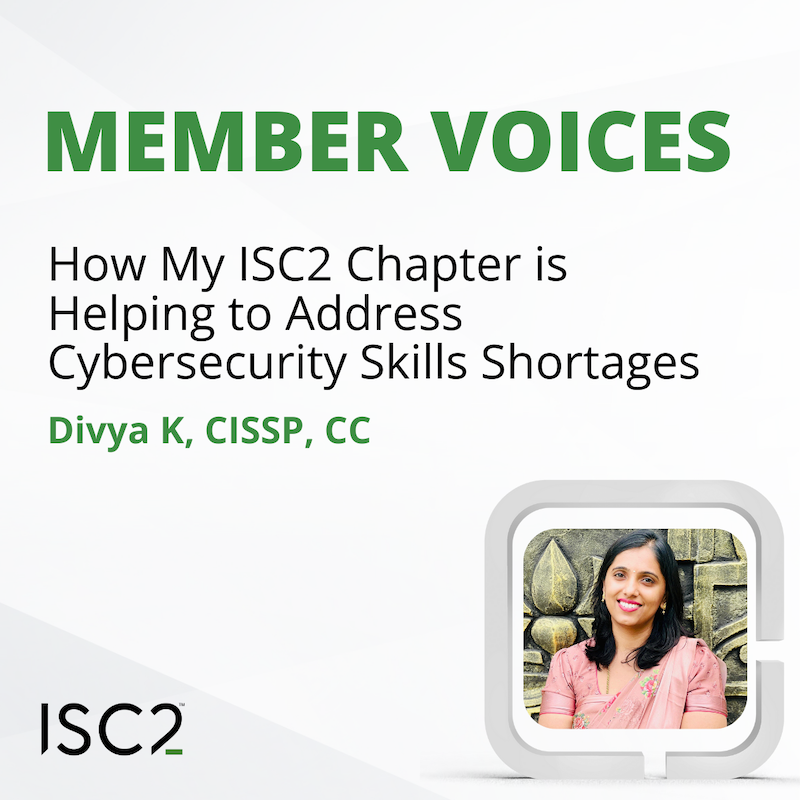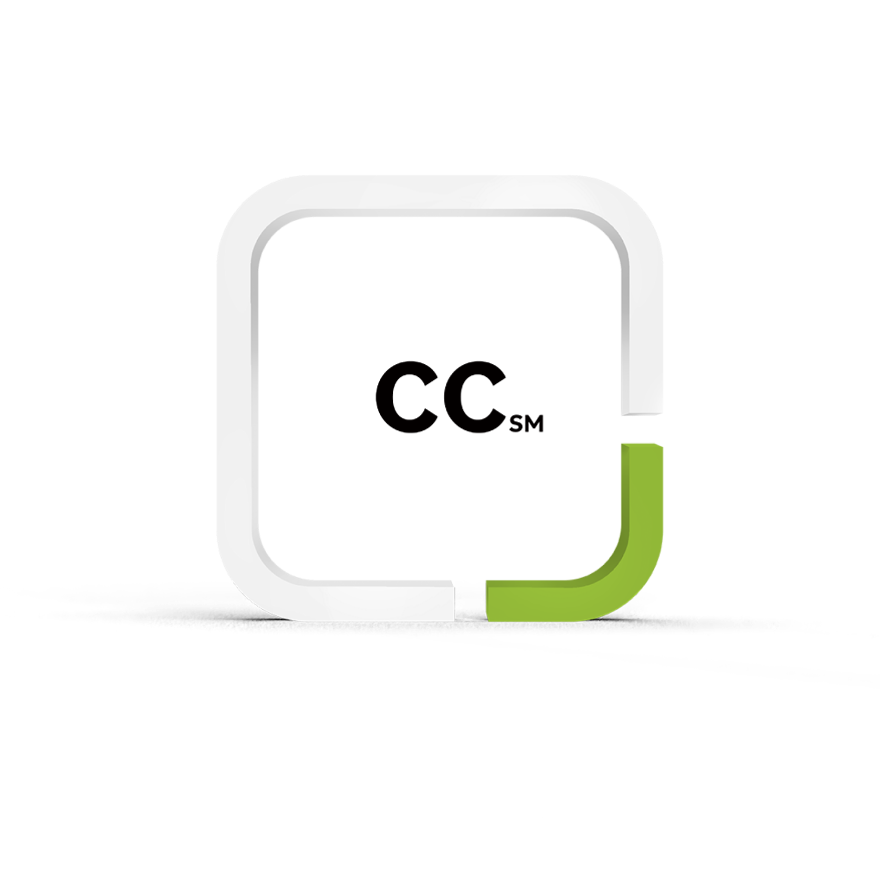From the military to a pharmacist to cybersecurity, Brady McNulty, CC, SSCP, has not had the usual pathway into his current role, but his career route has been nonetheless highly beneficial for a move to cybersecurity.
 To say that my route into cybersecurity has been outside of the norm is very
true. Even a bit of an understatement. After high school I joined the U.S.
Navy’s nuclear power program and operated nuclear reactors for a few years.
Uninspired, I wanted to change career fields entirely at the end of my
enlistment – so, after an honorable discharge from the Navy, I attended
undergraduate and pharmacy school and earned a Doctor of Pharmacy degree
from Texas A&M University.
To say that my route into cybersecurity has been outside of the norm is very
true. Even a bit of an understatement. After high school I joined the U.S.
Navy’s nuclear power program and operated nuclear reactors for a few years.
Uninspired, I wanted to change career fields entirely at the end of my
enlistment – so, after an honorable discharge from the Navy, I attended
undergraduate and pharmacy school and earned a Doctor of Pharmacy degree
from Texas A&M University.
I’d worked in the pharmacy sector for about 12 years when the global COVID-19 pandemic started. By that time, community pharmacies had already become unduly stressful, due to increasing demands upon pharmacists and technicians even as staff levels were falling. One local pharmacy shut down overnight, throwing our community into turmoil. Tempers ran high and then, one day, I was physically threatened by a frustrated member of the public.
Time For a Change
By this time, however, an alternative path was in sight. By virtue of its increasing profile in the wider world, I had developed something of an interest in cybersecurity. The very night of the incident, I decided that my nascent interest in cybersecurity would now need to become my driving force, and I’ve never looked back.
I enrolled right away in Western Governors University’s Bachelor of Science in Cybersecurity and Information Assurance program, which included several certifications. The timing was fortuitous: ISC2 was just rolling out a pilot program for what is now called Certified in Cybersecurity (CC). So, by the time I had graduated, I had obtained both CC and SSCP qualifications, along with several other relevant certifications and training.
One of the curious things I noted about my career change was that I had attended exactly zero pharmacy conferences as a pharmacist. But in my first year in my new adventure in information security, I attended the “Infosec Campout,” a convention that took place at a campsite outside of Seattle. I learned an important lesson there: the talks themselves were valuable, but the networking was invaluable and genuinely interesting. After the campout, I attended another enlightening conference called HOPE in New York City where I was able to jump right in as a volunteer.
Engaging at ISC2 Security Congress
One of the highlights of my time as a student was attending the 2022 ISC2 Security Congress, whose theme was “Empower.” I listened to and met many interesting speakers in the industry, and even met ISC2 CEO Clar Rosso.
I’d walked in slightly skeptical, wondering if I would truly feel “empowered”. As I left, I did. The weekend confirmed to me that I’d made the right decision in changing career to cybersecurity. I’ve stayed in frequent contact with some of the attendees who hadn’t hesitated to talk to a student, at length, about career options. This event also made me believe in the mission of ISC2.
As I neared the end of my degree work with WGU, I began applying for positions; I was nervous but ready to make the leap. I was fortunate enough to land a position that deals with investigations and digital forensics; I bid a final farewell to life in the pharmacy and went right to work at what I consider my dream job. I enjoy it so much, I have returned to WGU to obtain a Master’s degree in the same field, including a certification in digital forensics.
I’m sharing my story because I want people to know it’s okay to make big changes. I did it not just once but twice. I won’t lie, it’s not easy - but that’s because I work at it daily. I’ve never lost motivation or questioned my decision, and I genuinely enjoy going to work. One of my favorite parts of being a pharmacist was that every day was different, with unique puzzles to solve. Now, working as an information security engineer, I’m solving puzzles again. Just with fewer phone calls.
- Find out more about Certified in Cybersecurity , including ISC2’s One Million Certified in Cybersecurity program here
- The SSCP certification is a globally recognized IT security administration and operations qualification. Learn more here
- ISC2 Security Congress 2024 takes place in Las Vegas on 14-16 October. Register here and look at the call for papers here


